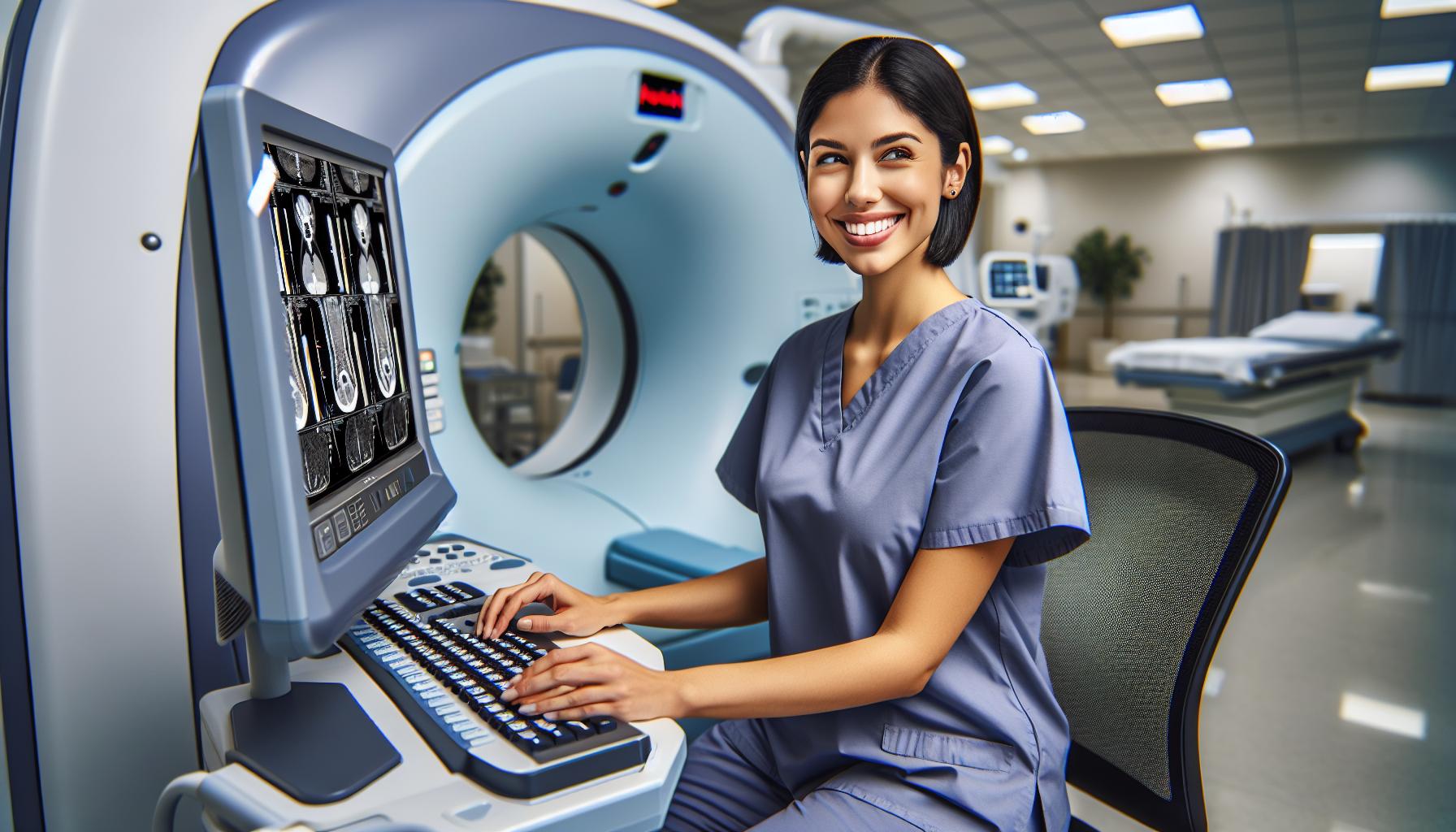Radiologic technologists play a vital role in healthcare by capturing medical images that help diagnose and treat patients. As the demand for medical imaging continues to grow these skilled professionals find themselves in an increasingly rewarding career path with competitive compensation. The hourly earnings of radiologic technologists vary based on several factors including experience level geographic location work setting and specialized certifications. While entry-level techs might start at a modest rate experienced professionals in high-demand areas can command impressive wages. Understanding the salary landscape helps aspiring rad techs make informed decisions about their career trajectory and potential earning potential in this dynamic field.
How Much Does A Radiologist Tech Make An Hour
Radiologic technologists earn competitive hourly wages across different career stages in the healthcare industry. Current data from the U.S. Bureau of Labor Statistics indicates varying pay scales based on experience levels.
Entry-Level Salary Range
Entry-level radiologic technologists earn an average of $21 to $25 per hour during their first 3 years of practice. Pay rates differ by geographic location, with metropolitan areas offering higher compensation compared to rural settings. Common entry-level positions include general radiography technicians at outpatient clinics diagnostic imaging centers.
Mid-Career Earnings
Mid-career radiologic technologists with 4-9 years of experience command $27 to $35 per hour. Additional certifications in specialized areas like CT scanning MRI imaging increase hourly rates by $3-$5. Healthcare facilities such as regional hospitals trauma centers typically offer higher mid-career wages plus shift differentials.
- Teaching hospitals
- Specialty medical centers
- Corporate healthcare systems
- Research institutions
| Experience Level | Hourly Rate Range | Annual Salary Equivalent |
|---|---|---|
| Entry-Level | $21-$25 | $43,680-$52,000 |
| Mid-Career | $27-$35 | $56,160-$72,800 |
| Senior-Level | $37-$45 | $76,960-$93,600 |
| Leadership | $42-$50 | $87,360-$104,000 |
Factors Affecting Radiologic Tech Pay Rates

Radiologic technologist salaries vary based on multiple key factors that influence earning potential. These determinants create significant differences in compensation across different regions markets.
Geographic Location Impact
Metropolitan areas offer higher pay rates for radiologic technologists compared to rural locations. Cities like San Francisco, New York, and Boston pay 25-40% above the national average due to higher living costs. Here’s a breakdown of regional pay variations:
| Region | Average Hourly Rate | Cost of Living Adjustment |
|---|---|---|
| Northeast | $35-42 | +15-25% |
| West Coast | $38-45 | +20-35% |
| Midwest | $28-35 | Base rate |
| Southeast | $25-32 | -5-15% |
Education and Certification
Additional certifications and advanced education directly correlate with increased earning potential. Each specialized certification adds $2-5 to the base hourly rate:
- CT certification increases hourly pay by $3-4
- MRI certification adds $4-5 to base pay
- Mammography specialization brings $3-4 more per hour
- Nuclear medicine technology certification adds $4-5
- Bachelor’s degree holders earn 10-15% more than associates degree holders
- Hospitals provide $28-40 per hour with comprehensive benefits
- Outpatient imaging centers pay $25-35 per hour with flexible schedules
- Mobile imaging services offer $30-45 per hour including travel premiums
- Educational institutions pay $32-38 per hour for teaching positions
- Private practices provide $26-36 per hour with performance bonuses
Additional Income Opportunities
Radiologic technologists access multiple avenues for increasing their earnings beyond base hourly rates. These opportunities enhance income potential through various scheduling arrangements specialized assignments.
Shift Differentials
Evening shifts typically add $2-4 per hour to base pay rates while overnight shifts offer $3-6 premium differentials. Weekend shifts provide additional compensation ranging from $1.50-3.50 per hour. Holiday coverage earns premium rates of 1.5-2x regular hourly pay depending on the facility policies.
Overtime Compensation
Overtime hours exceed 40 hours per week earn 1.5x the regular hourly rate. Holiday overtime generates 2x-2.5x standard compensation rates. Many facilities offer double-time pay for overtime shifts during major holidays. Radiologic technologists working in high-volume facilities average 5-10 overtime hours weekly.
On-Call Pay
On-call compensation includes a base standby rate of $2-5 per hour while on-call. Called-in work pays minimum 2-4 hours at 1.5x regular rates. Weekend on-call rotations typically earn higher standby rates of $3-7 hourly. Emergency department facilities offer enhanced on-call pay of $4-8 per hour due to increased activation likelihood.
| Additional Pay Type | Typical Rate Increase |
|---|---|
| Evening Shift | $2-4/hour |
| Night Shift | $3-6/hour |
| Weekend Shift | $1.50-3.50/hour |
| Holiday Pay | 1.5-2x base rate |
| Overtime | 1.5x base rate |
| Holiday Overtime | 2-2.5x base rate |
| On-Call Standby | $2-5/hour |
| Weekend On-Call | $3-7/hour |
| ED On-Call | $4-8/hour |
Benefits and Total Compensation Package
Radiologic technologists receive comprehensive benefits packages that enhance their total compensation value by 25-35% beyond base hourly wages. These packages include essential healthcare coverage, retirement planning options, and paid leave policies.
Healthcare Coverage
Healthcare benefits for radiologic technologists typically include medical, dental, and vision insurance with employer contributions covering 70-85% of premium costs. Most facilities offer:
- PPO plans with annual deductibles ranging from $500-$1,500
- HSA options with employer contributions of $500-$1,500 annually
- Dental coverage with 100% preventive care coverage
- Vision plans covering annual exams and $150-$250 toward eyewear
- Life insurance policies worth 1-2x annual salary
- Short-term disability coverage at 60-70% of base pay
Retirement Plans
Retirement benefits focus on long-term financial security through multiple investment vehicles:
- 401(k) plans with employer matches of 3-6% of annual salary
- 403(b) options for nonprofit healthcare facilities
- Immediate or graduated vesting schedules over 3-5 years
- Additional retirement planning resources including financial advisors
- Supplemental retirement accounts with pre-tax contribution options
- Pension plans in select healthcare systems offering 1-2% annual credits
- 2-4 weeks annual PTO for new employees
- Additional 5-7 paid holidays per year
- PTO accrual increases of 1-2 days per year of service
- Sick leave banks of 40-80 hours annually
- Educational leave for continuing education requirements
- Bereavement leave of 3-5 days per occurrence
Career Growth and Salary Advancement
Radiologic technologists can significantly increase their earning potential through strategic career advancement and specialized training. The field offers multiple pathways for professional growth and income enhancement.
Specialization Options
Radiologic technologists enhance their marketability through various specialization paths that command higher pay rates:
- Computed Tomography (CT): Adds $3-5 per hour to base pay
- Magnetic Resonance Imaging (MRI): Increases hourly rates by $4-7
- Mammography: Offers $2-4 additional per hour
- Interventional Radiology: Provides $5-8 premium per hour
- Nuclear Medicine: Commands $6-9 higher hourly rates
- Cardiovascular Imaging: Yields $4-7 extra per hour
Advanced Certifications
Professional certifications expand career opportunities and boost earning potential:
| Certification Type | Hourly Pay Increase | Annual Income Boost |
|---|---|---|
| ARRT Advanced Certification | $2-4 | $4,160-8,320 |
| Specialty Registration | $3-6 | $6,240-12,480 |
| Quality Management | $2-3 | $4,160-6,240 |
| Radiation Therapy | $5-8 | $10,400-16,640 |
| Medical Dosimetry | $7-10 | $14,560-20,800 |
- Immediate pay increases upon certification completion
- Access to leadership positions
- Priority consideration for specialized assignments
- Expanded job mobility across healthcare facilities
- Recognition as subject matter experts
- Eligibility for teaching opportunities
Radiologic technology offers a rewarding career path with substantial earning potential. The field presents numerous opportunities for financial growth through experience specialization and additional certifications. With base hourly rates ranging from $21 to $50 and various opportunities for premium pay through shift differentials overtime and on-call work professionals can build lucrative careers. Combined with comprehensive benefits packages and clear paths for advancement radiologic technology stands out as a financially stable healthcare profession. Those willing to invest in ongoing education pursue specialized certifications and remain flexible with work arrangements can maximize their earning potential in this dynamic field.



